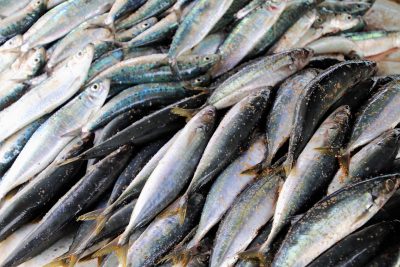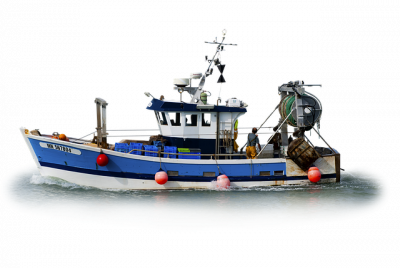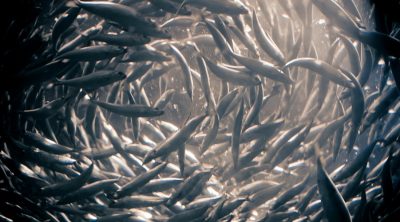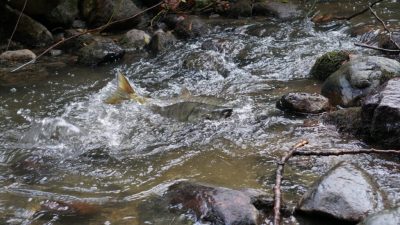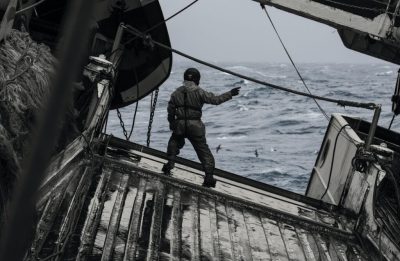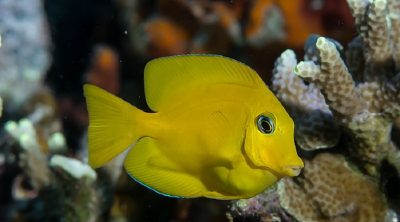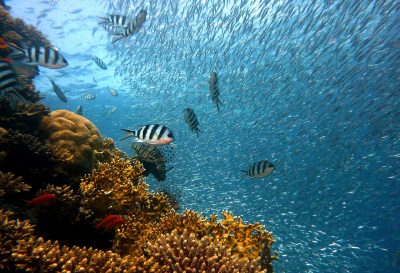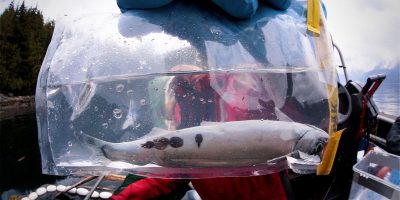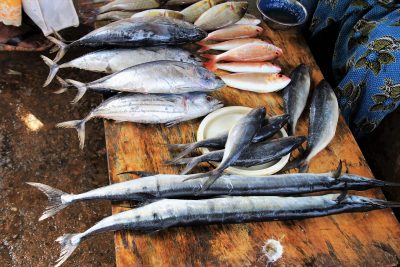Climate change will have an adverse impact on trophic amplification in marine food webs
Climate-driven changes in ocean environmental conditions — ocean warming, deoxygenation and acidification — are projected to affect the physiological functions of marine organisms, their geographic distributions, biological life cycles and total biomass.
New FCRR: Understanding the fishers to change the fishery in the bottom trawl industry in India
The report unravels the drivers and motivations that entice fishers and the fishery to start, engage in, and stop bottom trawling in India. Understanding the nuances within communities rather than viewing them as one entity is paramount for designing equitable policies. Moreover, the study highlights a pressing reality: fishers do not always want to fish and are sometimes forced to remain in the bottom trawl industry. Recognizing and addressing these insights are paramount in effectively constraining bottom trawling.
Market-based solution makes the case for blue carbon
Over 120 million tonnes of carbon dioxide equivalent could be sequestered every year by 2050 by applying a market-based solution (MBS) to global fisheries that would allow fishers to decide whether – at certain times – it is more profitable to go fish or to remain at port.
Salmon bones confirm sustainable chum fishery for 2,500 years under Tsleil-Waututh Nation
New research confirms that Tsleil-Waututh Nation has consistently and sustainably fished for chum salmon for 1,200 years longer than the archaeological record had previously demonstrated
Fish buffered from recent marine heatwaves, showing there’s still time to act on climate change
Fish were surprisingly resilient to marine heatwaves before 2019, highlighting the need to keep seas from warming further, according to new research.
Dr. Brian Hunt receives NSERC Discovery Grant to research the impacts of urbanization on the coastal ocean
Dr. Brian Hunt will receive an NSERC Discovery Grant for work on the impacts of urbanization on coastal oceans, specifically regarding ocean cities.
Fish species show surprisingly narrow combination of traits
The world’s waterbodies are filled with predatory fish feeding on other animals from zooplankton to squid and other fish, while “vegetarian” or herbivore fish are rare. Researchers has analyzed the key traits – size, productivity and trophic level – of over 31,000 fish species recorded in FishBase.
Specific combinations of ocean protection, beneficial for ecology and socio-economic futures
MPAs must be carefully designed using ecosystem approaches that incorporate fully and partially protected areas without interfering with the right to fish for those whose livelihoods are dependent on access to marine areas and fish stock.
Are viruses keeping sea lice at bay in wild salmon?
More than 30 previously unknown RNA viruses in sea lice have been identified by UBC researchers. Sea lice are parasitic copepods (small crustaceans) found in many fresh and saltwater habitats and have been implicated in the decline of wild salmon populations.
New FCRR: Global Fisheries: Livelihood Impacts of Overfishing. Technical Report: November 30, 2022
This technical report supports what researchers have been saying for many years – we urgently need to rebuild overfished fish stocks in order to recoup the current economic and social benefits that are inescapable with current catch loss.
